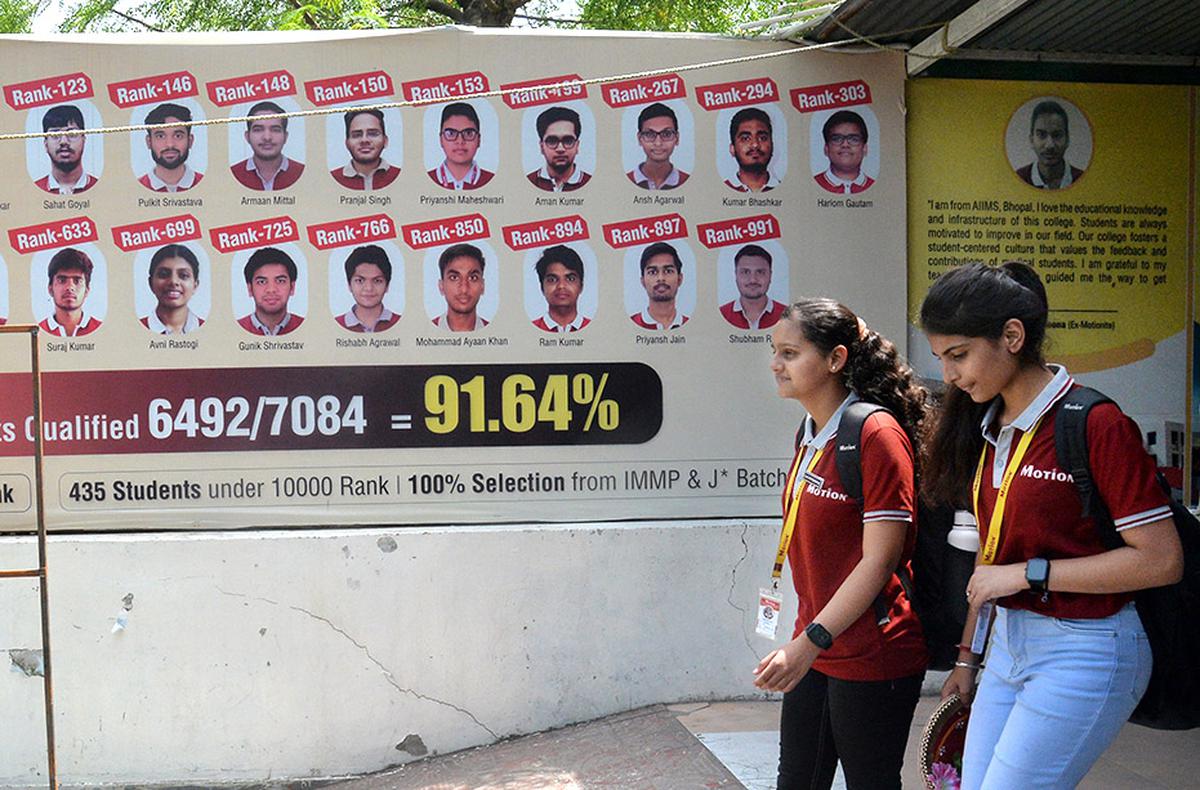From UPSC perspective, the following things are important :
Prelims level: Na
Mains level: India's growing private coaching industry has faced numerous challenges, including student suicides

Central Idea:
The discussion between Vimala Ramachandran and Arjun Mohan, moderated by Priscilla Jebaraj, revolves around the Ministry of Education’s new guidelines for private coaching centres in India, particularly focusing on the restriction of enrolment to those above 16 years of age. The conversation highlights the impact of the rule, challenges within the education system, the role of coaching centers, and the importance of mental health interventions.
Key Highlights:
- The Ministry’s guidelines aim to alleviate the pressure on young children caused by the private coaching industry and restore their childhood by restricting enrolment to those above 16 years old.
- The discussion underscores the high academic pressure faced by students and the necessity for foundational teaching, which is often lacking in the school system.
- Both speakers acknowledge the failures within the education system, including rote-oriented teaching and lack of conceptual understanding.
- Coaching centers are seen as filling the gaps left by the education system, catering to students’ needs from various backgrounds and academic levels.
- The conversation also delves into the challenges of implementing the guidelines effectively, especially considering the involvement of state governments and the need for clear regulations.
- Mental health interventions are recognized as crucial in reducing pressure on students, but systemic changes and public awareness campaigns are deemed essential for long-term impact.
- The role of parents in understanding and alleviating the pressure on their children is emphasized, alongside the responsibility of coaching centers in managing expectations and providing quality education.
- The issue of false advertising by some coaching institutes is acknowledged, along with the necessity for transparency and accountability in the industry.
Key Challenges:
- Lack of foundational teaching and conceptual understanding in the school system.
- Difficulty in implementing and enforcing the Ministry’s guidelines effectively, particularly at the state level.
- The pervasive academic pressure on students driven by competition and societal expectations.
- Insufficient mental health support for students facing stress and anxiety.
- Challenges in regulating the coaching industry to ensure transparency and accountability.
Main Terms:
- Ministry of Education
- Private coaching industry
- Enrolment restrictions
- Rote-oriented teaching
- Foundation programs
- Competitive exams (e.g., JEE, NEET)
- Shadow education system
- Consumer Protection Act
Important Phrases:
- “Restoring childhood”
- “Rote-oriented exam system”
- “Shadow education system”
- “Competitive exams pressure”
- “False and misleading advertising”
- “Transparency and accountability”
- “Mental health interventions”
Quotes:
- “The load on today’s children is high.”
- “Coaching helps students crack ultra-competitive exams.”
- “Misleading advertising happens in every industry.”
- “The pressure is because of competition.”
- “Education is a service industry.”
Useful Statements:
- “The Ministry’s guidelines aim to alleviate the pressure on young children by restricting enrolment to those above 16 years old.”
- “Coaching centers fill the gaps left by the education system, catering to students’ needs from various backgrounds and academic levels.”
- “Mental health interventions are crucial in reducing pressure on students, but systemic changes and public awareness campaigns are essential for long-term impact.”
- “The role of parents in understanding and alleviating the pressure on their children is emphasized.”
Examples and References:
- Student suicides in Kota, Rajasthan.
- Misleading advertising by some coaching institutes.
- Lack of conceptual understanding in the school system.
Facts and Data:
- India’s growing private coaching industry has faced numerous challenges, including student suicides, fire incidents, and complaints of poor infrastructure and teaching.
- Research shows higher levels of tuition and coaching in states with higher levels of government school systems.
Critical Analysis:
The discussion highlights systemic issues within the education system, the role of coaching centers, and the challenges in implementing regulatory measures effectively. It emphasizes the need for a holistic approach, including changes in pedagogy, parental involvement, mental health support, and regulatory oversight.
Way Forward:
- Implement the Ministry’s guidelines effectively, with clear regulations and oversight mechanisms.
- Reform the education system to focus on conceptual understanding and reduce reliance on rote learning.
- Increase awareness about mental health issues and provide adequate support services for students.
- Encourage parental involvement in understanding and alleviating academic pressure on children.
- Ensure transparency and accountability in the coaching industry to protect students from false advertising and unethical practices
Get an IAS/IPS ranker as your 1: 1 personal mentor for UPSC 2024
